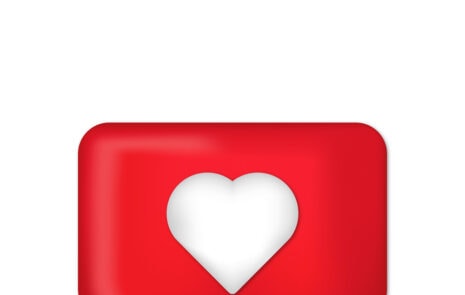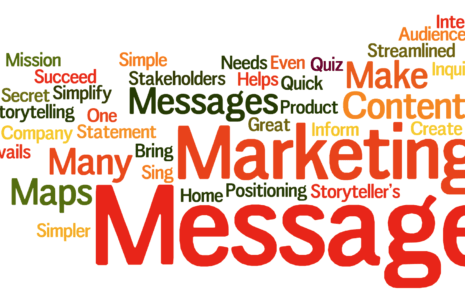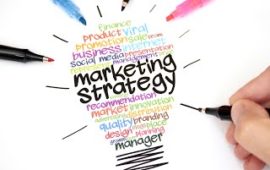
Presenting? Use these tips to be remembered
Be remembered when presenting.
Giving a presentation can be a great way to get your story heard. It helps both your personal brand and your company’s brand awareness and preference. It can inform people about your new solution or service.
But research over the years suggests that audiences forget up to 90% of your presentation within one week. And people can’t make decisions based on what they forget — decisions to contact you, to follow up, buy your latest solution, or even Google your brand to learn more all may be forgotten.
To get your story heard when presenting, remember: you need to be remembered.
How can you ensure your audience remembers your presentation? Here are 4 tips for being remembered:
- Tell the audience what’s in it for them.
- Be concrete.
- Be specific.
- Speak your audience’s language.
What am I going to get out of this presentation?
That’s what every member of your audience is wondering. Think about every presentation you’ve ever attended. You only paid attention when there was something in it for you. Your audience is thinking the same thing – what’s in this presentation for me?
Your best chance to get your story heard during your presentation is to tell it from the point of view of what’s in it for your audience. One of the best ways to do that is to make a Message Map and use it as you create your presentation.
A Message Map helps you tell a story focused on what’s in it for your target audience. Use it as a guide to start with the benefit to the audience, followed by how you’re going to help them achieve that benefit, and closing with any details they might need once you’ve captured their attention.
On the day of your presentation, don’t bury the lead. Open AND close with your key message – the message that tells your audience exactly what’s in it for them.
To be remembered, be concrete
According to cognitive neuroscientist Dr. Carmen Simon, we are all visual beings. Since people can’t picture abstract concepts, she recommends balancing concrete and abstract content.
Try to use at least some language that will paint a picture in your audience’s minds. For example, when Steve Jobs announced the original iPod, he didn’t start with saying there is a new small device with the latest technology that enables you to store more music than ever before.
He said, “You can put 1,000 songs in your pocket.”
Every person who heard that was hooked, wanted to hear more, and definitely remembered it.
Be as specific as possible during your presentation
While being concrete helps paint a picture for your audience, by itself, it’s not always enough. You should also be as specific as possible during your presentation. Jobs didn’t say “thousands of songs,” he said “1,000 songs.”
Imagine I tell you to picture a dog, and you can do that easily. But what if I wanted you to picture a greyhound, and instead you imagined a beagle?

The more specific you are, the easier it is for people to hear exactly what you want them to, increasing the chance they’ll remember your presentation.
Speak your audience’s language to be remembered when presenting.
When I tell my clients that Mark Twain wrote at a fourth-grade reading level, most of them are surprised. Now, I don’t know any fourth-grader who has read Mark Twain. But that’s because his topics are mature, not his language.
I’m not suggesting your presentation should be at the fourth-grade level. I am suggesting that you know your audience well and use clear language they will understand. Even highly educated audiences prefer to hear language that is clear, concise and consistent.
Giving a presentation is a great way to get your story heard. By telling your audience what’s in it for them and using concrete, specific language, you can greatly increase your chances of being remembered.
For more tips on messaging, communications, and marketing, subscribe to our blog.
Related Posts
Emotional messages move people
Emotional messages move people. So put emotion into your message map. Home base is the heart and soul of your Message Map That’s why...
How Can You Keep Your Content Marketing Always on Message?
How to keep your content marketing always on message? It’s a tough job: to keep all your company’s marketing and communications on message as you address...
Top 10 Blogs of 2016 on Marketing Messages and Content Marketing
The top 10 blogs you chose to read in 2016 focused on marketing messages & content marketing. You zoomed in on 3 problems that vex and bedevil marketers...
Top 100 Content Marketing Question: How do you get buy-in for a content marketing strategy?
Here are 4 ways to get buy-in for a content marketing strategy: Build a big tent to co-create strategy. Educate about why the company...





